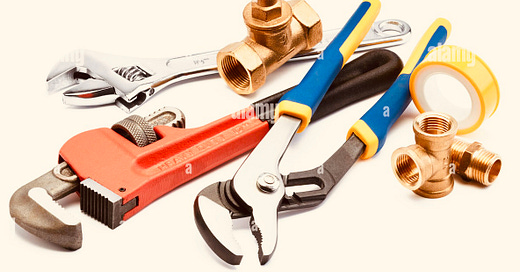Referenda, Plebiscites & Surveys
ELECTIONS allow citizens to choose between several contenders WHO compete to lead their communities. Each tells HOW they plan to lead. Do THEIR IDEAS align with YOUR PRIORITIES?
TOOLS of PUBLIC GOVERNANCE.
We are all familiar with elections and how they are conducted. Every election is simply a tool for an intended purpose, but are their other tools that could be used to get better results?
Claude.ai describes a few that have been used:
Here are key differences between three types of public opinion gathering:
A referendum is a direct vote by the general public on a specific political or constitutional issue. It's legally binding, meaning the government must implement the result. For example, the 2016 Brexit referendum in the UK was legally binding and resulted in Britain leaving the European Union.
A plebiscite is very similar to a referendum but is technically advisory rather than legally binding. While governments typically respect the result of a plebiscite for political reasons, they're not legally required to do so. The 1999 Australian republic plebiscite is a good example - citizens voted to keep the monarchy, and while the government wasn't legally bound by this, they respected the result.
A survey, in contrast, is much less formal. It samples only a portion of the population rather than seeking everyone's input, and has no legal or political weight. Surveys are typically conducted by polling organizations, researchers, or governments to understand public opinion on various issues. For instance, regular political polls that measure party support or views on specific policies are surveys.
The key distinctions lie in:
1. Legal status (binding vs. advisory vs. informal)
2. Scale (whole electorate vs. sample population)
3. Official recognition (government-sanctioned vs. private initiative)
4. Implementation requirements (must be implemented vs. may be implemented vs. no implementation required)
Keep in mind that the above tools concern information gathering and communications which the modern Information Economy performs better every day through incessant advances in technology and processes.
Plumbers have tools
PROFESSIONAL PLUMBERS are expected to use a variety of tools to fix your broken water or gas lines. They can also be counted upon to adapt with the times and use new materials and methods to get better results.
WHY, then, are ELECTIONS the only tool used to fix our economic, security, prosperity, corruption and other public problems created by poor leadership?
In the modern Digital Economy, they are much better ways to determine who, where, why and how Canada can be governed fairly, effectively and respectfully.
In Digital Direct Democracy, A Libertarian Antidote to Digital Communism, I offered a perfectly good system proposal to bring elections into the modern era, but no politician or public official has read it or chosen to ask me about it.
The LAST TO CHANGE?
Unlike professional plumbers, government officials and elected representatives always seem to be the last to adopt new and better ways to govern us. If their institutions are too big and cumbersome to allow them to do a good job, then the answers is obvious.





That was the worst thing to keep that pos monarchy! All the common wealth countries were the worst offenders of personal rights and freedoms offenses. The Alberta report is excellent at bringing this out. Unfortunately the Canadian judicial system is corrupted by the globalists plans of enslavement for all.